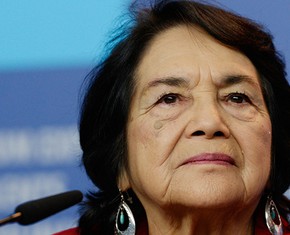The views expressed in our content reflect individual perspectives and do not represent the authoritative views of the Baha'i Faith.
When culture is based on a dominator model, not only will it be violent, but it will frame all relationships as power struggles. – bell hooks, The Will to Change: Men, Masculinity, and Love
The world of humanity has two wings — one is women and the other men. Not until both wings are equally developed can the bird fly. Should one wing remain weak, flight is impossible. – Abdu’l-Baha, Selections from the Writings of Abdu’l-Baha, p. 301.
We tend to think of patriarchal societies as unjust social systems that enforce strict gender roles and oppress women. But that’s only half of the true reality: patriarchal societies oppress men, too.
Obviously, no group of people can truly progress when they decide, either consciously or unconsciously, to retard the advancement of half of their members. When one gender dominates another, it holds back both genders. Slavery oppresses and demeans both the slave and the slaveholder. So patriarchy and male domination—sexual assault on a massive, metaphorical basis—oppresses everyone.
The prejudiced concept that men are inherently superior to women forms the basis of all male privilege and all patriarchy. That unjust sense of superiority has a profoundly negative effect on both sexes, the Baha’i teachings say. It not only unfairly suppresses and holds women back; it also limits the development of men; and prevents all humanity from making progress and living into its full potential:
The world of humanity is possessed of two wings: the male and the female. So long as these two wings are not equivalent in strength, the bird will not fly. Until womankind reaches the same degree as man, until she enjoys the same arena of activity, extraordinary attainment for humanity will not be realized; humanity cannot wing its way to heights of real attainment. When the two wings or parts become equivalent in strength, enjoying the same prerogatives, the flight of man will be exceedingly lofty and extraordinary. Therefore, woman must receive the same education as man and all inequality be adjusted. Thus, imbued with the same virtues as man, rising through all the degrees of human attainment, women will become the peers of men, and until this equality is established, true progress and attainment for the human race will not be facilitated. – Abdu’l-Baha, The Promulgation of Universal Peace, p. 374.
Want proof? Just look at the world’s nations through this lens: compare the material and intellectual prosperity of countries that treat women relatively equally with those that don’t.
The United Nations, the World Economic Forum, the World Bank, the Institute for the Study of Global Prosperity and many more organizations, research institutions and think tanks all agree that closing the “gender gap”—the disparity in access to resources and opportunities between men and women—is the single most important thing any economy can do to improve its overall strength, sustainability and standing in the world. Strong, proven correlations exist between reducing gender inequality and enhancing productivity and economic growth. The World Economic Forum concluded, in its latest Global Gender Gap Report:
…that for a country to maximize its economic competitiveness and development, it will need to achieve gender equality by giving women the same rights, responsibilities and access to opportunity as men.
The Institute for the Study of Global Prosperity, with its Baha’i-inspired perspective, reached an even more pointed conclusion:
The achievement of full equality between women and men is one of the most important prerequisites for global prosperity and the advancement of society. The denial of such equality, in whatever form, perpetrates an injustice against one half of the world’s population and promotes in men harmful attitudes and habits that are carried from the family to the workplace, to political life, and ultimately to international relations. – Equality of Men and Women
So, what’s the very best, most optimal single step we can take to build stronger and more successful relationships, companies, organizations and societies? Scientists, economists and business experts all say that welcoming and encouraging the full participation and equality of women creates the most progress. The Baha’i teachings agree:
I hope for a like degree of progress among the women… that each may shine like unto a lamp; that they may cry out the proclamation of the kingdom; that they may truly assist the men; nay, that they may be even superior to the men, versed in sciences and yet detached, so that the whole world may bear witness to the fact that men and women have absolutely the same rights. – Abdu’l-Baha, Divine Philosophy, p. 88.
Closing the gender gap isn’t a simple task, however. Some Scandinavian and a few African countries have tried hard and gotten closer—for example, the World Economic Forum’s Gender Gap report says:
The highest ranking country on the Economic Participation and Opportunity subindex, Norway, has closed more than 84% of its gender gap, while Syria, the lowest ranking country, has closed only 25% of its economic gender gap.
We still have a long way to go, but we are beginning to move in the right direction. In the countries and regions of the world that have made the most progress, women have demanded equal rights, and enlightened men have responded to those demands by ceding power and position in the interests of fairness and justice. The transformation isn’t easy, because the old patriarchal models of male-dominated social systems don’t often give way without significant struggle.
The great psychologist and philosopher Carl Jung said that patriarchy could be viewed as a “stunted, immature form of masculinity,” with its focus on controlling and dominating women. When men voluntarily give up that dominator model, and actively advocate for the complete emancipation and equality of women, it elevates everyone:
God’s Bounty is for all and gives power for all progress. When men own the equality of women there will be no need for them to struggle for their rights! – Abdu’l-Baha, Paris Talks, p. 161.
Next: Eliminating Aggression and the Use of Force in Relationships
















Comments
Sign in or create an account
Continue with Googleor